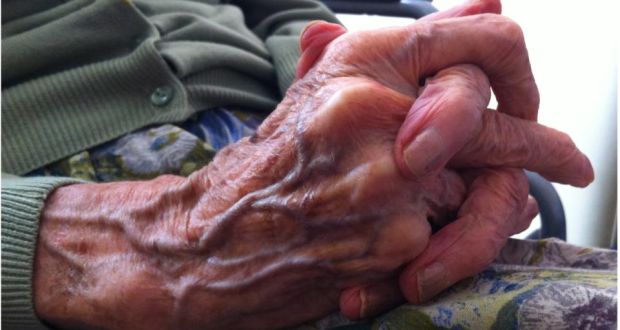Ireland Has ‘Fastest Rising Need’ for Palliative Care in Europe
Resource type: News
The Irish Times | [ View Original Source (opens in new window) ]
Rapidly-ageing Irish population behind trend, new study suggests

Increases in funding will be needed to cater for the increase in deaths from cancer, dementia and neurodegenerative diseases according to new research. Photograph: Bryan O’Brien/The Irish Times
By Paul Cullen
Ireland has the fastest rising need for palliative care in Europe due to its rapidly ageing population, a new study suggests.
Significant increases in funding will be needed to cater for the increase in deaths from cancer, dementia and neurodegenerative diseases such as Alzheimer’s, according to the study published by British and Irish researchers in the Journal of Pain and Symptom Management.
Eighty per cent of the deaths recorded between 2007 and 2011 were from conditions recognised as having associated palliative care needs. This compares to 63 per cent in the UK and 50 per cent in Australia.
The study shows that while deaths from cancer increased by 9.5 per cent over this period, the increase in deaths caused by dementia and neurodegenerative diseases was far greater, as 51 per cent and 43 per cent respectively. In contrast, deaths from heart and respiratory disease, and stroke, are falling.
It says new models of palliative care may be required to address these trends. Current funding levels are running at only half the required amount.
Funding increase
“It is internationally recognised that the prevalence of advanced chronic conditions such as cancer, dementia and neurodegenerative disease, which have recognised palliative care needs, increases with older age,” said lead author Dr Pauline Kane of King’s College London. “With Ireland’s population ageing at the fastest rate in Europe, this palliative care need will continue to grow.
“Specialist palliative care, which is interdisciplinary care provided under the direction of a consultant physician, will require significant increases in funding to address this need and new models of palliative care must be explored.”
The number of people with dementia is projected to rise by 63 per cent between 2006 and 2021, from 41,000 to 67,000.
Meanwhile, specialists working in the area have called for a review of the palliative services for children after new figures revealed the number of children living with a life-limiting illness was almost three times greater than previously estimated.
The fact that palliative needs are far greater than originally thought has significant implications for service provision and workforce planning, according to the specialists from LauraLynn Children’s Hospice, Jack & Jill Foundation, Irish Hospice Foundation and Crumlin Children’s Hospital.
In a letter to the HSE, they say more nurses are need to treat the 3,840 children now thoughtto have a life-limiting condition.
The Irish Hospice Foundation is an Atlantic grantee.